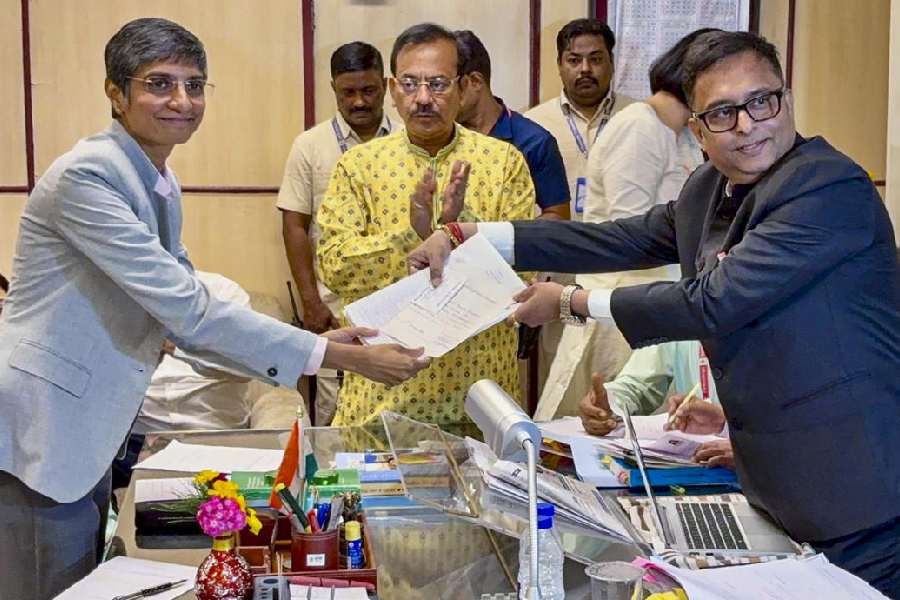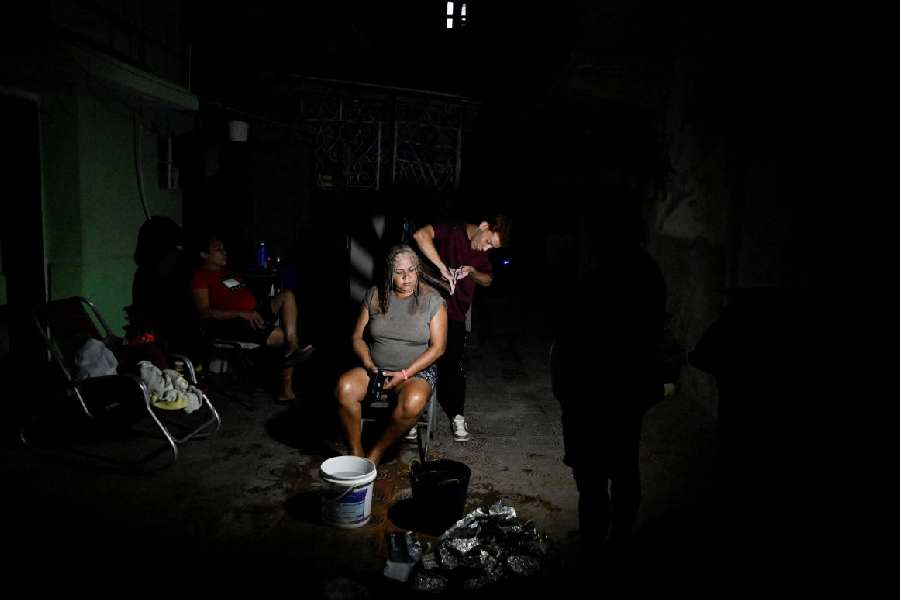 Thursday, 05 March 2026
Thursday, 05 March 2026
 Thursday, 05 March 2026
Thursday, 05 March 2026
Prime Minister Narendra Modi’s arrival at the G20 Leaders’ Summit in Johannesburg on Saturday set the stage for a forceful pitch for a global reset, as he unveiled a suite of initiatives aimed at confronting the drug-terror nexus, strengthening health emergency responses and rapidly expanding skills training across Africa.
Modi was received warmly by South African President Cyril Ramaphosa at the Johannesburg Expo Centre.
“Working together for an inclusive, just and sustainable world,” the Ministry of External Affairs posted on X, noting Ramaphosa’s reception as Modi joined leaders for the opening session of the summit hosted by South Africa.
The Prime Minister had landed at Waterkloof Air Force Base on Friday, saying he looked forward to “productive discussions” with world leaders at a summit hosted by a newly empowered G20 that now includes the African Union as a permanent member.
Addressing the opening session on inclusive and sustainable growth, Modi called for a profound rethink of global development metrics.
“Now is the right moment for us to revisit our development parameters,” he said, emphasising India’s civilisational principle of Integral Humanism as a guide to a more balanced and humane growth model.
Modi warned on the spread of lethal synthetic drugs like fentanyl.
Proposing a G20 Initiative on Countering the Drug–Terror Nexus, he urged leaders to “weaken the wretched drug-terror economy,” arguing that narcotics trafficking and violent extremism had become dangerously intertwined and demanded coordinated global action.
Building on India's traditional medicine and community health systems, Modi also sought the creation of a Global Traditional Knowledge Repository — a collective vault of eco-balanced, culturally rooted practices that could advance global wellbeing.
Reinforcing New Delhi’s long-standing partnership with Africa, he announced the G20–Africa Skills Multiplier Initiative, with the ambitious target of creating one million certified trainers across the continent within the next decade.
“Africa’s progress is vital for global progress,” Modi said, framing the initiative as a cornerstone of a more equitable world order.
Modi proposed a G20 Global Healthcare Response Team — a multinational pool of trained medical professionals capable of rapid deployment during pandemics, natural disasters or humanitarian crises.
“We are stronger when we work together in the face of health emergencies,” he said.
On the sidelines of the summit, Modi met British Prime Minister Keir Starmer, calling the engagement “wonderful” and noting that 2024 had injected “new energy” into the India–UK partnership.
He also held a “very productive” meeting with UN Secretary-General António Guterres, discussing global priorities and multilateral cooperation.







